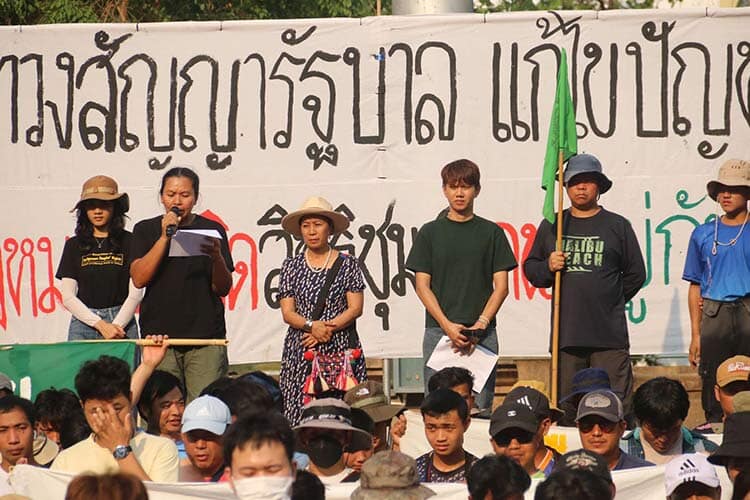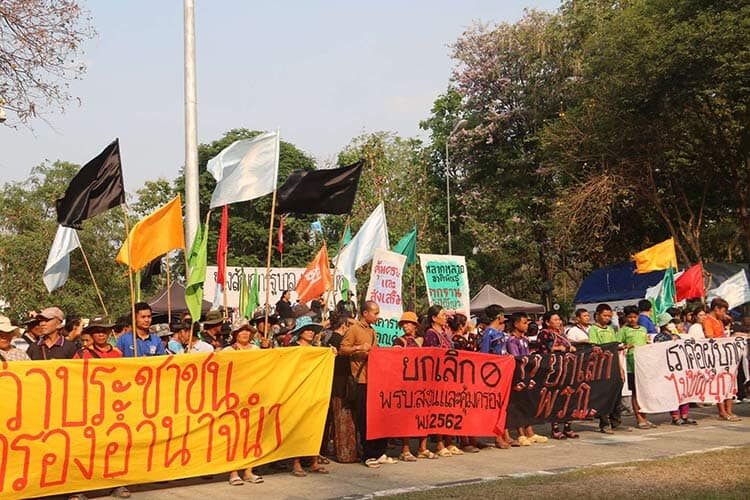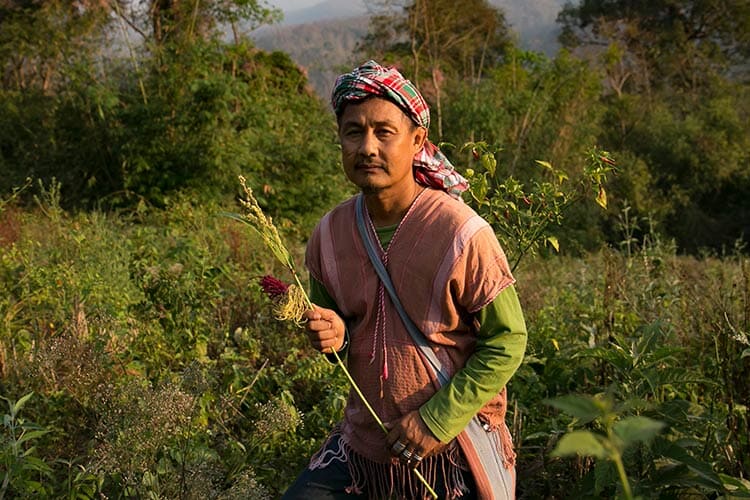I am so happy to write you today with exciting news from Thailand. Just last week, our parliament passed the Act on the Protection and Promotion of the Way of Life of Ethnic Groups — with an incredible 420 out of 425 representatives voting in favor. This groundbreaking law is the culmination of years of hard work: advocacy, campaigning, public education, petitions and more.
AJWS grantees have stood at the center of the decade-long movement supporting this bill, through countless public demonstrations, meetings, and actions; some of our partners even helped draft the text of the law itself! So, what does the law actually mean?

First, let me introduce myself. I am a longtime human rights expert writing you from my home in Bangkok. Unfortunately, for my safety and security, we cannot publish my name. After decades of activism fighting for climate justice, and the rights of Thailand’s many ethnic minorities, I began working with AJWS in 2010— mentoring and supporting our partners to carry on the torch.
When I say that this new law is a true victory for human rights — I speak from years and years of experience.
In Thailand, there are more than 60 ethnic minorities — about 6 million people. Many of these communities live in harmony with nature, farming, fishing or gathering food and observing their own cultural traditions. But for decades, our government has oppressed these groups — evicting them from their homes and sacred spaces to make room for industrial development or protected forests, and denying them a legal route to fight back. Those who’ve spoken out have regularly been disappeared or murdered.

And in an ironic and disgraceful practice, the government has blamed many ethnic communities for deforestation and climate change — even though these communities are truly protectors of the land and sea, farming and fishing in ways that do not harm their environments.
This new law aims to right these wrongs. It enshrines for ethnic minorities “the right to land, natural resources, and the environment as necessary for their subsistence or communal activities,” as well as the “right to protect themselves and be protected from any act that would remove them from their land, territory, natural resources and homes… without consent.” In short, the law protects these communities from further injustice — and proclaims their right to legal recourse and compensation if injustice persists.
Somchat Raksongplu is the leader of Baan Klang, a Karen village in Northern Thailand. I have known him for many, many years — he works with AJWS partner Northern Peasant Federation. Here’s what he told me last week:

“Before this law, we had no way to make our voices heard. When we demanded our rights to the land we’ve lived on for generations, we were accused of overstepping. We’ve been sued, prosecuted. This movement was started by villagers whose rights had been violated. We gathered signatures from people in many mountains and valleys to submit the drafted bill to parliament. So today, this is a victory for the villagers.”
Our partners tell me that the work doesn’t stop — they’ll need to pressure the government to implement the law across Thailand’s rural areas. But there is hope in the hills today.
